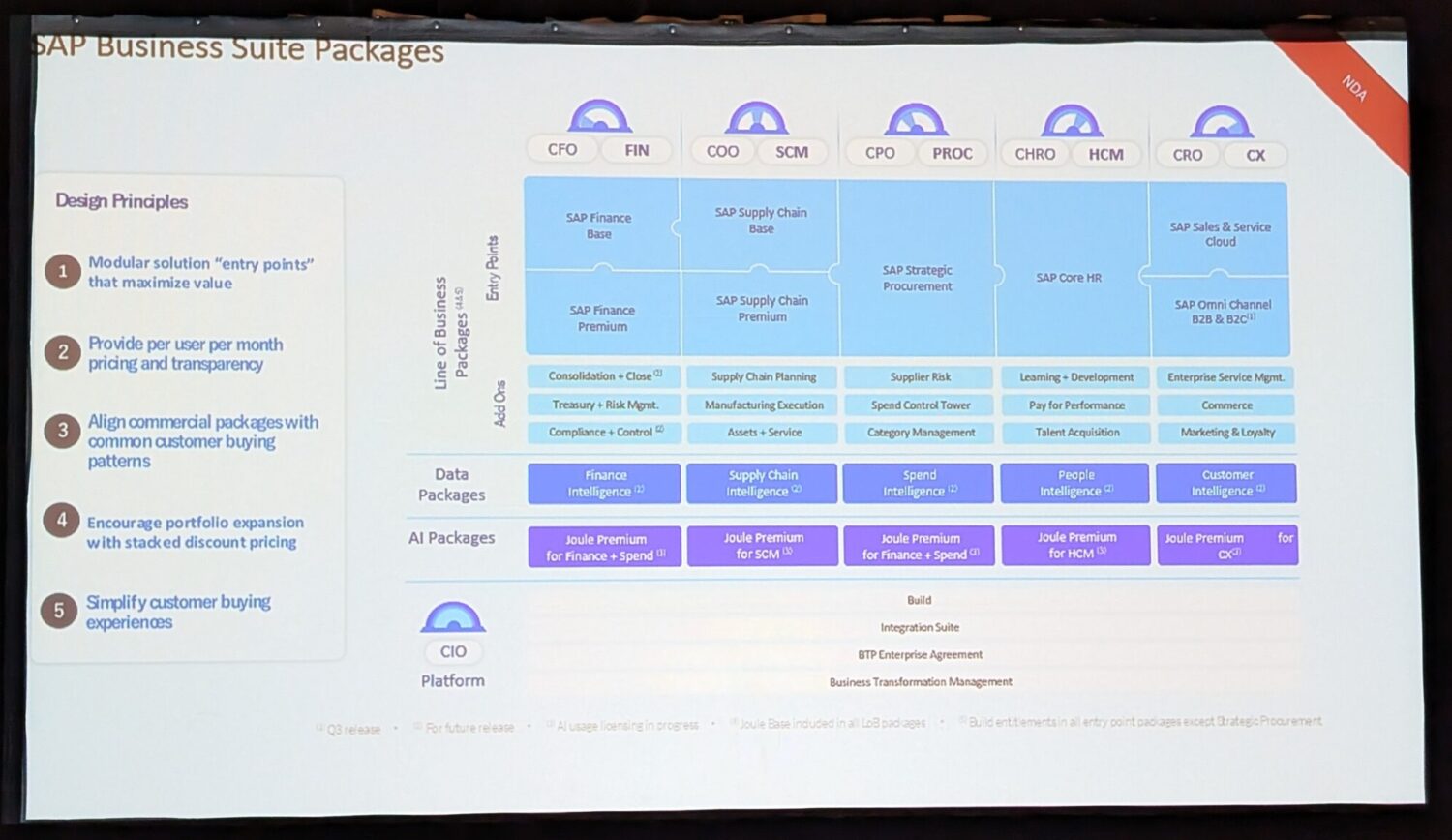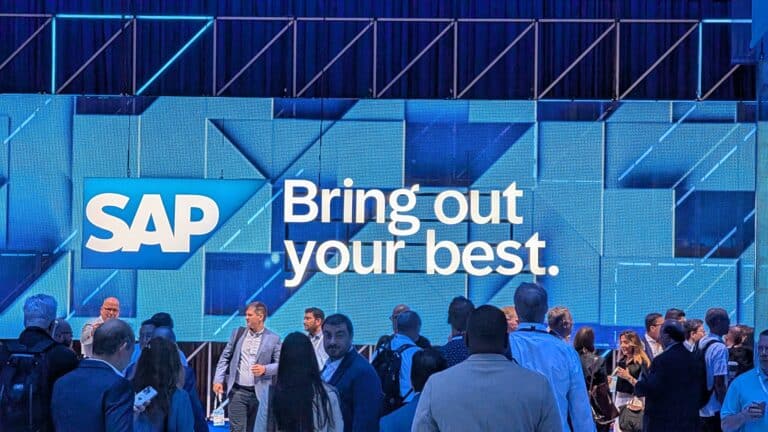SAP is revising its entire pricing strategy for SaaS products. The company has introduced new Business Suite application packages in a subscription format. The aim of the new subscriptions is to make SAP solutions more transparent in terms of pricing and easier to implement. SAP is the first ERP supplier to publish its prices openly on its website.
The new SAP packages have a small modular portfolio structure and subscription prices based on a per-user, per-month basis. The new modular approach is tailored to various business departments such as finance, supply chain, HR, procurement, and sales. This approach follows the introduction of the SAP Business Suite in February 2025 and offers customers an easier entry point into the SAP portfolio. To make this possible, SAP has had to significantly reduce the number of SKUs.
We spoke with Manos Raptopoulos, Chief Revenue Officer at SAP, about this change in strategy.
With these new packages, SAP is launching a strategy that makes it easier for companies to get started and expand their SAP environment step by step. By linking the modules to specific business departments, SAP wants to make it clearer to customers which solutions are relevant to them. Customers will also be able to expand their packages step by step, both horizontally and vertically. This also applies to the prices that will soon be published on the website.
The prices that customers will pay are based on a per-user, per-month subscription model. There is a standard price, and a few upgrades are available for purchase, such as data and premium AI. However, SAP states that the basic price already includes a lot and that many customers can get by just fine without these add-ons.
The new approach should lower the threshold for organizations that are unsure whether to switch to SAP. A modular entry point allows companies to start with what they need right away and expand later with additional functionality.
Public cloud only, sovereign cloud not yet included
The new SAP Business Suite packages only apply to the SaaS portfolio offered from the public cloud. SAP determines which public cloud the workloads will ultimately run on. We understand that the customer has little influence on this. SAP still has 35 of its own data centers from which it also provides some public cloud services. However, it also has contracts with AWS, Azure, and Google Cloud.
At present, it appears that customers will have to pay more for a sovereign offering. The number of European customers who do not want to be in an American cloud is currently growing rapidly, so SAP might respond to this demand even better in the near future. We understand that SAP has recently invested heavily in creating sufficient AI capacity in its own data centers so that it does not have to rely on American hyperscalers.

Five different packages
SAP currently offers five different application packages:
SAP Finance Packages: These packages support a wide range of financial, sales, and procurement processes such as lead-to-cash, procure-to-pay, and record-to-report. The solutions are powered by AI and real-time insights for more efficient management. They also include working capital optimization and management functions from SAP Taulia.
SAP Supply Chain Management Packages: These AI-powered supply chain applications integrate operational processes and supply chain functions with the rest of the organization. They help customers achieve greater flexibility, transparency, and responsiveness across the entire chain.
SAP Human Capital Management Packages: These packages include essential HR functions such as payroll, time tracking, and workforce management. The cloud-based, AI-enabled solutions deliver greater agility, better workforce decisions, and improved employee satisfaction.
SAP Procurement Packages: These integrated solutions from SAP Ariba support the source-to-contract process through intuitive procurement, contract management, and supplier management.
SAP Customer Experience Packages: These cloud-based, AI-driven tools combine sales, service, e-commerce, marketing automation, customer data management, and salesforce automation. They help organizations make decisions, accelerate customer engagement, and increase revenue opportunities.
Integration with SAP Business Technology Platform
The SAP Business Suite is a comprehensive suite of integrated solutions that combines Cloud ERP, Business Applications, SAP Business Data Cloud, and SAP Business AI, all powered by the SAP Business Technology Platform. All packages also include SAP Build, which allows customers to extend their applications while maintaining a “clean core.”
This continues to align with the RISE with SAP and GROW with SAP programs, through which the company offers complete solutions tailored to different target groups.
The new Business Suite packages also align with SAP’s focus on Business AI, one of the company’s key strategic growth areas. Earlier this year, SAP established a dedicated business unit for Business AI, led by Chief Artificial Intelligence Officer Dr. Philipp Herzig.
Also read: Christian Klein: “SAP has the most modern cloud stack of all SaaS vendors”
